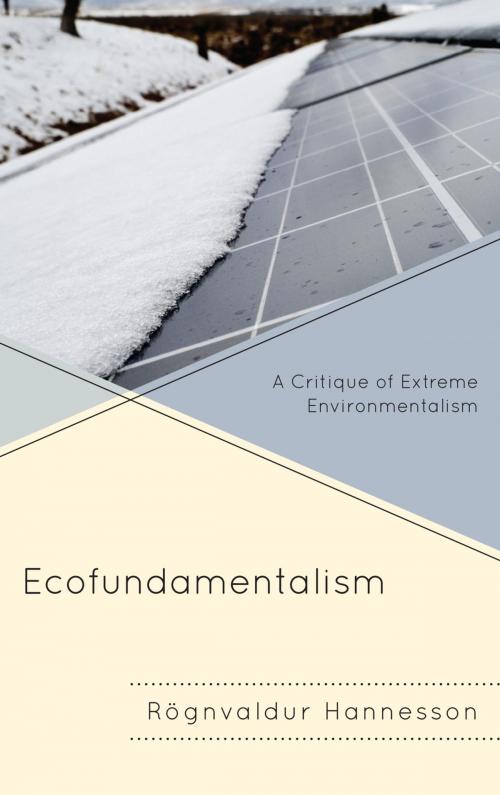Ecofundamentalism
A Critique of Extreme Environmentalism
Business & Finance, Economics, Economic Development, Theory of Economics| Author: | Rögnvaldur Hannesson | ISBN: | 9780739189641 |
| Publisher: | Lexington Books | Publication: | February 19, 2014 |
| Imprint: | Lexington Books | Language: | English |
| Author: | Rögnvaldur Hannesson |
| ISBN: | 9780739189641 |
| Publisher: | Lexington Books |
| Publication: | February 19, 2014 |
| Imprint: | Lexington Books |
| Language: | English |
Everyone has heard of environmentalism, but what is it? Is it ideology or religion? Like socialism, environmentalism is a political program, but even more diffuse. Environmentalists hold diverse opinions, from wanting to take care of nature in human interest to putting nature above man. The latter is religious environmentalism, with nature taking the place of the supernatural. This book is a critique of this type of environmentalism, appropriately named ecofundamentalism. This may be a minority or even marginal opinion, but it seems to shape people’s thinking to an unwarranted degree. In the worst of cases, it would bring the end of civilization as we know it.
Without massive monocultures, supported by pesticides and fertilizer, we could never feed ourselves. Almost 90 percent of our primary energy comes from fossil fuels, without which there would be no air travel, cars and trucks, reliable electricity, and even much of our food supply. Putting a premium on biodiversity and getting serious about greenhouse gas emissions would force us to go without these things, putting us back in the Middle Ages.
Fortunately, there is no need to heed any of these environmentalist prescriptions. Contrary to the notion that economic growth is unsustainable and our core problem, it is actually the core solution. Economic growth and technology has made it possible for food production to outpace population growth since the industrial revolution. Economic growth is one reason why population growth worldwide has fallen so that the “population bomb” may never explode. It has also made us largely independent of the weather except for growing our crops. Meanwhile, ecofundamentalism would cause more harm than good.
Everyone has heard of environmentalism, but what is it? Is it ideology or religion? Like socialism, environmentalism is a political program, but even more diffuse. Environmentalists hold diverse opinions, from wanting to take care of nature in human interest to putting nature above man. The latter is religious environmentalism, with nature taking the place of the supernatural. This book is a critique of this type of environmentalism, appropriately named ecofundamentalism. This may be a minority or even marginal opinion, but it seems to shape people’s thinking to an unwarranted degree. In the worst of cases, it would bring the end of civilization as we know it.
Without massive monocultures, supported by pesticides and fertilizer, we could never feed ourselves. Almost 90 percent of our primary energy comes from fossil fuels, without which there would be no air travel, cars and trucks, reliable electricity, and even much of our food supply. Putting a premium on biodiversity and getting serious about greenhouse gas emissions would force us to go without these things, putting us back in the Middle Ages.
Fortunately, there is no need to heed any of these environmentalist prescriptions. Contrary to the notion that economic growth is unsustainable and our core problem, it is actually the core solution. Economic growth and technology has made it possible for food production to outpace population growth since the industrial revolution. Economic growth is one reason why population growth worldwide has fallen so that the “population bomb” may never explode. It has also made us largely independent of the weather except for growing our crops. Meanwhile, ecofundamentalism would cause more harm than good.















